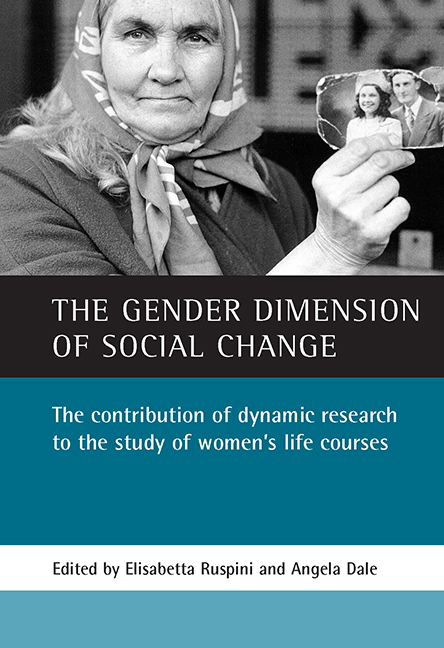 The Gender Dimension of Social Change
The Gender Dimension of Social Change seven - Fixed-term contracts and unemployment at the beginning of the employment career in Germany: does gender matter?
Published online by Cambridge University Press: 20 January 2022
Summary
Introduction
The risks of precarious work (such as fixed-term and part-time employment) and unemployment have been on the rise in recent years in most OECD countries, although to different degrees depending on the national macroeconomic and institutional contexts (see, for example, Standing, 1997; OECD, 1998). Many studies indicate that these risks differ by educational and occupational class (for example, OECD, 1998; Bernardi, 2000; Kurz and Steinhage, 2001). The question of how the growth in precarious positions relates to gender inequalities is, however, less well studied (Smith and Gottfried, 1998). Of course, it is well known that one form of precarious employment – part-time work – is the domain of women in most countries (Blossfeld and Hakim, 1997). In contrast, it is less clear whether the risks of other forms of precarious work (for example, of fixed-term contracts) and unemployment are also gender biased.
In this chapter we will study to what extent women and men in the West and East of Germany are affected by fixed-term contracts and the risk of unemployment at the beginning of their career. The focus on employment entrants allows us to observe how gender inequalities might develop from the start of the employment career. At this stage, family work is not yet important to most people. Thus, if gender differences can be found, these cannot be attributed directly to different family obligations of women and men. Furthermore, to study employees at the beginning of their career seems particularly suited since, in the German context of a closed employment system, precarious employment is mainly introduced to new employees (Blossfeld, 2000).
Besides the focus on outcomes in terms of gender inequality, we also investigate whether the risk of being in precarious employment or unemployment is stratified by education, vocational training, occupational class, ethnic origin and region (East versus West Germany), and how these factors interact with gender issues. More generally, we want to know whether precarious jobs and unemployment become more or less likely for all labour market entrants – that is, ‘individualised’, or whether certain groups are more affected than others by these risks (Beck, 1986; Bernardi, 2000).
- Type
- Chapter
- Information
- The Gender Dimension of Social ChangeThe Contribution of Dynamic Research to the Study of Women's Life Courses, pp. 133 - 158Publisher: Bristol University PressPrint publication year: 2002


